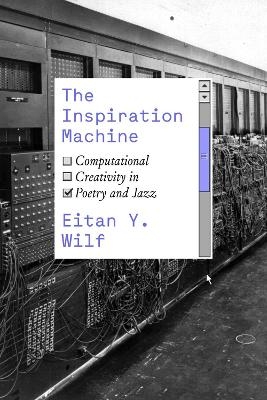
The Inspiration Machine
University of Chicago Press (Verlag)
978-0-226-82831-2 (ISBN)
In The Inspiration Machine, Eitan Y. Wilf explores the transformative potentials that digital technology opens up for creative practice through three ethnographic cases, two with jazz musicians and one with a group of poets. At times dissatisfied with the limitations of human creativity, these artists do not turn to computerized algorithms merely to execute their preconceived ideas. Rather, they approach them as creative partners, delegating to them different degrees of agentive control and artistic decision-making in the hopes of finding inspiration in their output and thereby expanding their own creative horizons.
The algorithms these artists develop and use, however, remain rooted in and haunted by the specific social predicaments and human shortfalls that they were intended to overcome. Experiments in the digital thus hold an important lesson: although Wilf’s interlocutors returned from their adventures with computational creativity with modified, novel, and enriched capacities and predilections, they also gained a renewed appreciation for, and at times a desire to re-inhabit, non-digital creativity. In examining the potentials and pitfalls of seemingly autonomous digital technologies in the realm of art, Wilf shows that computational solutions to the real or imagined insufficiencies of human practice are best developed in relation to, rather than away from, the social and cultural contexts that gave rise to those insufficiencies, in the first place.
Eitan Y. Wilf is associate professor of anthropology at the Hebrew University of Jerusalem. He is the author of School for Cool and Creativity on Demand, both published by the University of Chicago Press.
Acknowledgments
Introduction: Toward an Anthropology of Computational Creativity
PART I Jazz: Mimicry, Originality, Sociality
1 “I Prefer Playing with It to Playing with Most People”: The Computer as a Musical Conversation Partner
2 An Island of Interactivity in an Ocean of Nonreactivity: The Trade-Offs of a Made-to-Order Artificial Musical World
3 “A Device That Would Generate New Musical Ideas”: The Computer as a Source of Musical Inspiration
4 Separating Noise from Signal: The Ethnomethodological Uncanny as Aesthetic Pleasure in Human-Machine Interaction
PART II Poetry: Indeterminacy, Potentiality, Intentionality
5 Computer-Generated Poetry and Some of Its Aesthetic and Technical Dimensions
6 “I Randomize, Therefore I Think”: Computational Indeterminacy and the Tensions of American Liberal Subjectivity
7 Analog Precursors and Their Digital Logical End: The Oulipo
8 Crosscurrents and Opposing Perspectives
Conclusion: Neither Our Doom nor Our Salvation: Open-Ended Digital Systems and Cultural Critique
Notes
References
Index
| Erscheinungsdatum | 21.10.2023 |
|---|---|
| Zusatzinfo | 10 halftones |
| Sprache | englisch |
| Maße | 152 x 229 mm |
| Gewicht | 481 g |
| Themenwelt | Kunst / Musik / Theater ► Musik ► Musiktheorie / Musiklehre |
| Geisteswissenschaften ► Archäologie | |
| Informatik ► Theorie / Studium ► Künstliche Intelligenz / Robotik | |
| Naturwissenschaften | |
| Sozialwissenschaften ► Ethnologie | |
| Sozialwissenschaften ► Soziologie | |
| ISBN-10 | 0-226-82831-X / 022682831X |
| ISBN-13 | 978-0-226-82831-2 / 9780226828312 |
| Zustand | Neuware |
| Informationen gemäß Produktsicherheitsverordnung (GPSR) | |
| Haben Sie eine Frage zum Produkt? |
aus dem Bereich


